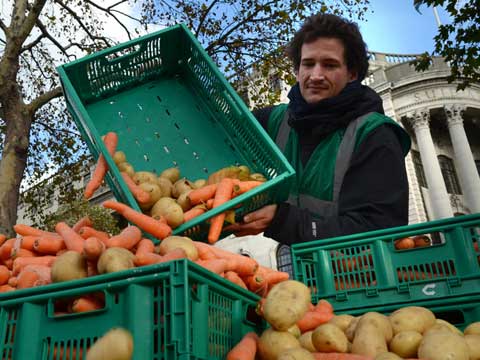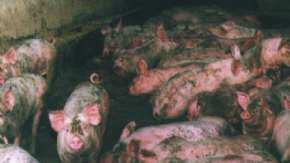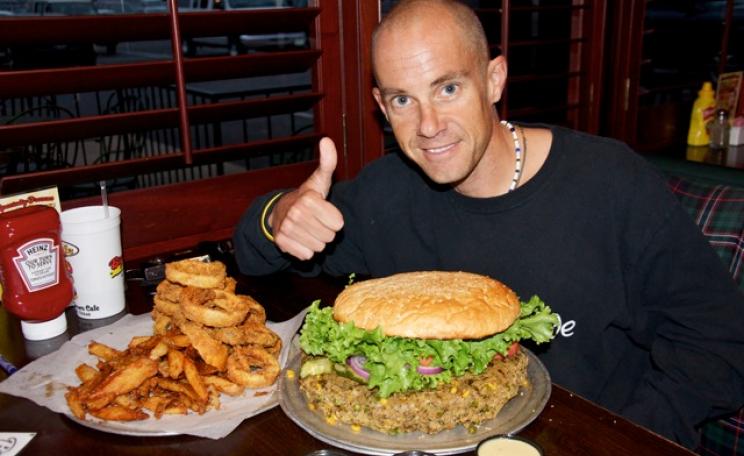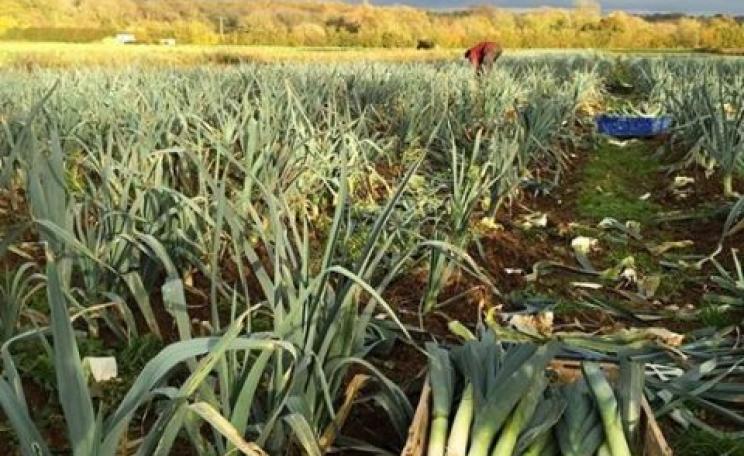As your till receipts will testify, the cost of food has climbed alarmingly of late. And it looks as if higher food bills are here to stay, not just for years, but for decades. A series of global factors - climate change, a growing world population, shortage of oil, market speculation and a weak pound - are combining to drive up the price of food. The underlying trend is that food prices will continue to rise in real terms for the next 30 years. So we have moved into a period when food will become a much more significant item in the house hold budget.
It's wearing having to worry constantly about the bottom line, but when money is tight there's no need to abandon your ethical and progressive instincts and buy the cheapest (and potentially nastiest) food on offer, or fill up on stodge. Instead, look on rising prices as an opportunity to hone your 'domestic economy' skills - yet still eat well - by employing these strategies:
Waste nothing - use every last bit of food you buy
Cut out waste by shopping as frequently as possible, and try to buy only what you need for the next couple of days. Never bin food that could have a further use. For instance, sour milk makes great pancakes and scones, old bread gets a new lease of life when made into breadcrumbs, salads and puddings. Eggs that are past their 'use by' date can be safely eaten in recipes where they will be well cooked, such as a cake or fritatta. Don't throw away fat from meat or poultry roasts - use it for frying. Make old fruit into crumbles and compotes and tired vegetables into soups and purées. Save the leathery ends of Parmesan wedges to flavour soups and sauces.
Be super-suspicious of supermarket promotional offers
Three-for-two deals, buy-one-get-one-free, multisavers and more of that ilk need to be treated with deep scepticism. Their whole purpose is to get you to buy more food than you might otherwise do. With non-perishable foods, they might possibly represent a chance to stock up on products that you'll get through in the fullness of time, although, if you're controlling your weekly budget carefully, it might be better to buy only what you need, as and when you need it, rather than stockpiling potentially useful foods. But apparently good deals on fresh food rarely save you money. They not only coax more money than you had intended out of your pocket, they also encourage you to overbuy. Chances are than some of what you pick up will be wasted because it was more than you really needed. A promotional deal isn't a bargain if it ends up in the bin.
Check out cheaper sources for food you buy regularly
If you tend to shop for food on auto-pilot in the same place, compare prices in other outlets once in a while. For example, fruit and vegetables generally cost much less in greengrocers and markets than in supermarkets; certain products, like Parmesan, are often significantly cheaper in foreign discount chains; spices are much better value in Asian shops; nuts often cost less when bought in larger quantities in Chinese supermarkets; organic vegetables and eggs from a farmers' market or box scheme may well be cheaper than the equivalent in supermarkets.
Stick with meat from free-range animals rather than switching to factory-farmed, but consider reducing the quantity you eat
In a typical stew or curry recipe, for instance, cut the quantity of meat specified by a half to a third, and make up the difference with vegetables or pulses. Bone up on how to cook cheaper, but delicious, cuts of meat such as beef shin, pork cheeks, neck of lamb and duck legs and make a little go a long way. Choose cuts of meat with some bone and fat. They may not look as neat and tidy, but they often have more flavour and richness than so-called 'prime' cuts, and cost much less.
Go for cheaper, less well-known types of fish
Forget the pricy premier league species like cod, tuna and halibut and concentrate on second division species like megrim, rockfish, coley, herring and mackerel. They taste good but sell for less largely because people are less familiar with them.
Cook more food from scratch and keep processed convenience foods to the bare minimum
Unless you're prepared to live on bargain-basement, poor value, low grade processed food, then buying convenience foods, like ready meals, is an extremely expensive, not to mention unsatisfactory, way to eat. By doing most of your own cooking you will not only improve the flavour and freshness of what you eat, but you also save a mint. Most of what you're paying for is packaging and marketing.
Take lunch to work
Buying lunch from takeaways eats into your finances in an insidious way. A drink, a sandwich and a sweet bite easily clocks up £5 a day, usually for something that's deeply inferior to what you'd make at home. For the price of a floppy sarnie filled with rubbery cheese, you could make an infinitely superior home-made one, using decent bread and your pick of the country's finest artisan cheese. If it's the planning that defeats you, just scale up what you cook the night before to make sure that there's enough left for lunch the next day. Last night's leftovers, however random and variable, often taste even better at lunchtime.
Drink tap water
Bottled water costs anything from 500-900 per cent more than tap. Quench your thirst with this and it's as much of a drain on your financial resources as paying up a car loan, or signing up for a private club. Give up that pricy habit and you'll feel flush in no time. If you don't like the taste of tap water, drink it with ice and lemon, leave it to sit in the fridge so that the chlorine evaporates, use a jug filter, or make a one-off investment in a plumbed-in water filter.
Grow any food you can and make the most of cheap, seasonal, UK-grown produce
Even if it's just a snipping of herbs from a pot on the window sill, or some cut-and-come-again salads grown in a container on a balcony, a bit of home-grown food can not only transform your meals, it can also save you a surprising amount of money. Buy fresh, UK-grown fruits and vegetables at the height of their season when they are cheapest, and at their nutritional peak.
Forage enthusiastically whenever you get the chance
 Both in rural and urban settings, there is a free larder of interesting foods at your disposal. Sniff out wild garlic leaves in city parks in spring, pick blackberries from roadside thickets in late summer, and scour the woods for wild mushrooms in autumn. Get your revenge on the ground elder in your garden by eating it.
Both in rural and urban settings, there is a free larder of interesting foods at your disposal. Sniff out wild garlic leaves in city parks in spring, pick blackberries from roadside thickets in late summer, and scour the woods for wild mushrooms in autumn. Get your revenge on the ground elder in your garden by eating it.
What to Eat by Joanna Blythman is published by 4th Estate (2012, £16.99).
| READ MORE... | |
 |
INVESTIGATION The rise of nutraceuticals: how the ‘placebo-driven’ industry has got us hooked Big companies, from PepsiCo to Kellogg’s, are cashing in on our interest in health food ‘quick fixes’ while continuing to sell us high fat, sugary foods |
 |
HOW TO MAKE A DIFFERENCE Can we cut cancer and heart disease rates just by going vegan? We've heard about the environmental and animal welfare problems with meat consumption. Now a new film, Planeat, presents a convincing health case to re-examine our love affair with meat and dairy, reports Matilda Lee |
 |
INVESTIGATION Love Food Hate Waste: could you live without throwing food away? Madeleine Cuff challenged herself to spend a week reducing her food and packaging waste. Did it work, and will other consumers and supermarkets take note? |
 |
INVESTIGATION BLT Sandwich: The Big Lifestyle Trade Off Is it worse than Mc Donalds? The BLT sandwich is an icon, the ultimate symbol of convenience culture. Tesco alone sells 5 million a year. This is what the £1.80 you pay for your BLT buys... |
 |
GREEN LIVING Nose to tail eating: it's sustainable but can you stomach this type of meat? With 15 billion farm animals killed each year for food in the UK, eating the whole animal is the ethical choice. The Ecologist follows Fergus Henderson's lead and tries a week of eating offal |








